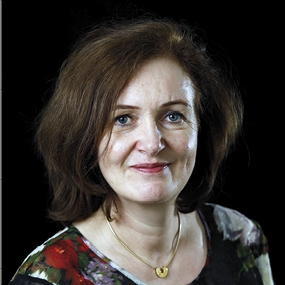Recognition and progression at last

Kirstin became a Council member in 2015 until 2021 and has been involved in a number of College committees.
Specialty doctor and Associate Specialist (SAS) anaesthetists have frequently and persistently expressed regret and frustration over the lack of career progression on offer. Since the closure of the associate specialist grade to new entrants in 2008, the grade of specialty doctor has included anaesthetists varying from those with only a few years’ experience to those with decades under their belt and a high level of skill.
Increased or increasing professional expertise was not reflected in promotions or via a change in job title. Progress along the existing specialty doctor pay scale was slow. The top of the pay scale fell well short of that of consultants, though many SAS anaesthetists felt they offered a very similar service. SAS careers were often perceived as choices of last resort and post holders experienced not only a lack of respect, but often harassment and bullying.
The introduction of a new contract for specialty doctors and a new specialist grade from April 2021 is therefore welcomed by the RCoA. We are proud to have lobbied the Department of Health and Social Care (DHSC) for the need of SAS contract reform and to have collaborated with other specialties on the job and person specification for the new specialists. We are delighted that negotiations on contract reform have successfully concluded and that SAS doctors have overwhelmingly voted in favour of the contract reform.
What is in it for SAS anaesthetists? The new specialty doctor contract offers a simpler pay scale with faster progression to the top. The gap to consultant pay is narrowed, though by no means eliminated, by the new specialist grade. There are clearly defined criteria for pay progression. For those wishing to develop the skills to become senior decision makers and willing and able to practice autonomously (to a level of defined competencies) there is the new specialist grade to aim for.
Autonomous working, up to now handled variably by employers and managers, is built into the new specialist contract. Employers have expressed a desire to recruit, motivate and retain highly experienced doctors to such posts which will be appointed to in open competition. The job title of ‘specialist’ will reflect the expertise offered by this part of our workforce. Our own workforce data from our censuses shows the need for SAS anaesthetists.
But of course, employment is not just about job titles and pay. Importantly, the new contracts also offer important wellbeing safeguards in the form of limits of out of hours work, scheduling of elective work and shifts and stipulates minimum rest periods.
All SAS anaesthetists currently on national contracts should be offered transition to the new contracts by their employers in the next few months. The decision to accept will have to be made by you, the individual SAS doctor, based on your individual circumstances. Job planning remains important to shape your individual working life and be pivotal to the potential progression. Advice is available from your trade union if you are a member, and detailed information is freely available for all via the NHS Employers website. Human resources departments should be able to guide you through your decision.
This is a chance to embrace a career as an SAS anaesthetist as a desirable option amongst others. I hope that career advice for future doctors will include a career as a SAS doctor as a respected and fulfilling alternative to the consultant path. It is now up to SAS doctors to grasp this opportunity to gain more recognition and reward and hopefully with that more respect for our contribution to the NHS.
If you are an SAS or Locally Employed Doctor (LED) and would like to join the College SAS committee - more details can be found on the RCoA website.
Dr Kirstin May
